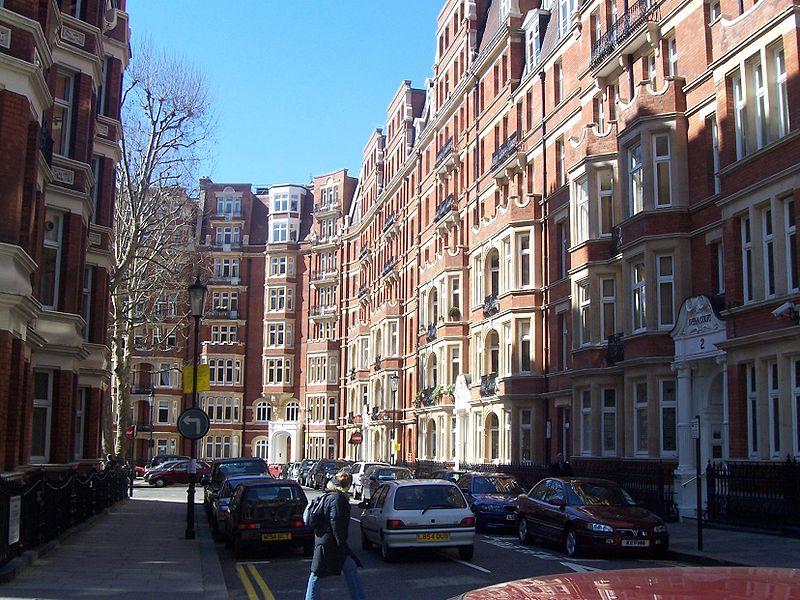As wealthy invest in urban properties, middle class being priced out in some areas
Prices for homes in the highly desirable Kensington neighborhood, pictured, are skyrocketing because of investment by the super rich. But even more modest areas of London are seeing skyrocketing house values. (Photo by Yaanch via Wikimedia Commons.)
Around the world, income inequality is growing: The rich are getting richer.
With banks teetering and stock and bond markets roiled by the prospect of government default and economic recession, they’ve chosen to park their money in prime real estate.
A recent story in the online journal, Russia Today, reported that a Russian billionaire spent $88 million for a 4-bedroom apartment on Central Park West in New York City. In Miami Beach, the owner of the Russian Standard Bank and Russian Standard Vodka paid $25 million for an estate — the most expensive home purchase in the city since 2006.
The same thing is happening in London — where property prices are soaring. Michael Robinson, a BBC reporter, said that’s become a problem for many other Londoners. And it’s the exact oposite of what’s happening in other parts of the U.K., where home prices are at best stagnant and, more likely, are falling.
Mark Redfern, a Kensington-based real estate agent, has compiled an entire list of properties that start at $7.5 million.
“We’ve got a good 20 or 30 new individuals who’ve come into the market in the last week who are looking in that kind of price range,” he said. “Somebody just viewed a house above £22.5 million. I was out with a gentleman last week who has a budget up to £40 million.”
That’s more than $60 million. For a residential home.
Yolande Barnes, a housing analyst for another London real estate brokerage, said many of those investing their money in London’s hottest market, as much as three-quarters of the top end of the market, are from overseas.
“As the world gets more embroiled in economic and political turmoil, the better London gets,” she said. “London properties are being used as a store of wealth. It has quite close correlation to the price of gold, so when people are buying gold they’re also buying prime London real properties.”
Even in simpler, residential neighborhoods, home prices have shot up by more than $30,000 per year since 1997, said Michael Robinson, a BBC reporter who lives in London.
The dramatically rising prices has had the effect of effectively preventing all but the wealthy from buying homes.
Rebecca Percey, a teacher in northwest London, far from the most expensive parts of the city, has decided to return home to Australia because her wages make it impossible to buy anything.
“A two-bedroom flat that isn’t particularly memorable, could be up to a half a million pounds,” she said.
That’s about $750,000. For a two-bedroom apartment, far from downtown London and more than a half-hour from the school where she teaches. Just to qualify for it, she’d need to be able to pay 20 percent down and earning more than £100,000 per year.
“I’m a senior teacher, so I earn £45,000,” she said.
The average wage in the U.K. is just £26,000.
Our coverage reaches millions each week, but only a small fraction of listeners contribute to sustain our program. We still need 224 more people to donate $100 or $10/monthly to unlock our $67,000 match. Will you help us get there today?
